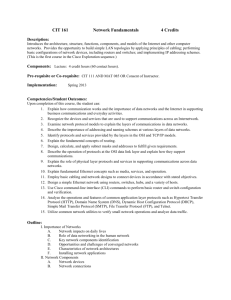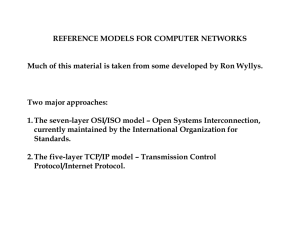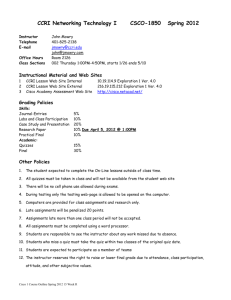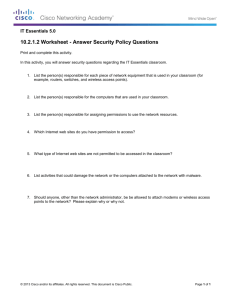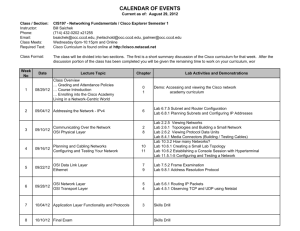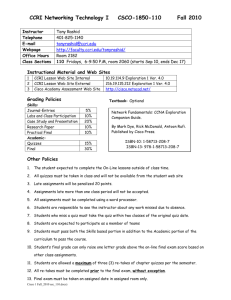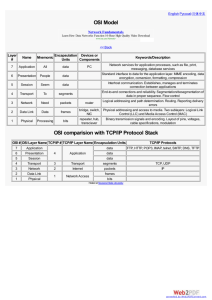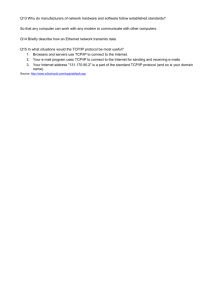100% real exam questions answers
advertisement
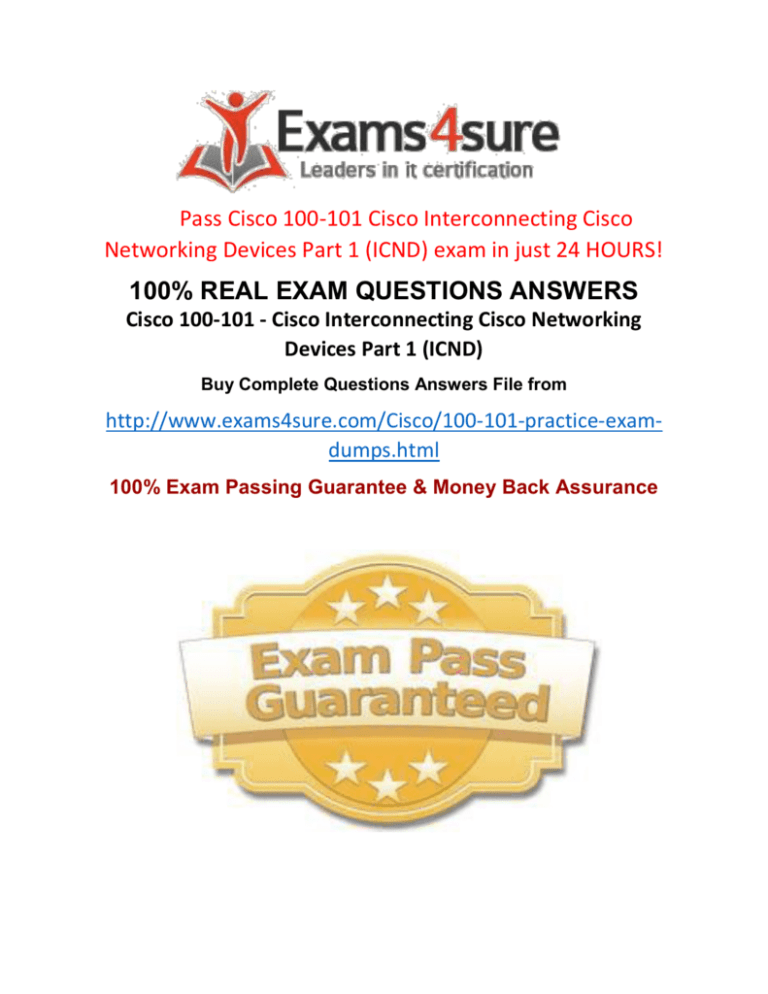
Pass Cisco 100-101 Cisco Interconnecting Cisco Networking Devices Part 1 (ICND) exam in just 24 HOURS! 100% REAL EXAM QUESTIONS ANSWERS Cisco 100-101 - Cisco Interconnecting Cisco Networking Devices Part 1 (ICND) Buy Complete Questions Answers File from http://www.exams4sure.com/Cisco/100-101-practice-examdumps.html 100% Exam Passing Guarantee & Money Back Assurance Sample Questions Question No 1: Which three statements are true about the operation of a full-duplex Ethernet network? (Choose three.) A. B. C. D. There are no collisions in full-duplex mode. A dedicated switch port is required for each full-duplex node. Ethernet hub ports are preconfigured for full-duplex mode. In a full-duplex environment, the host network card must check for the availability of the network media before transmitting. E. The host network card and the switch port must be capable of operating in full-duplex mode. Answer: A, B, E Question No 2: Which OSI layer header contains the address of a destination host that is on another network? A. B. C. D. E. F. Application Session Transport Network Data link Physical Answer: D Question No 3: Which layer of the TCP/IP stack combines the OSI model physical and data link layers? A. B. C. D. Internet layer Transport layer Application layer Network access layer Answer: D Question No 4: Which protocol uses a connection-oriented service to deliver files between end systems? A. B. C. D. E. TFTP DNS FTP SNMP RIP Answer: C Question No 5: Which statements accurately describe CDP? (Choose three.) A. B. C. D. E. F. CDP is an IEEE standard protocol. CDP is a Cisco proprietary protocol. CDP is a datalink layer protocol. CDP is a network layer protocol. CDP can discover directly connected neighboring Cisco devices. CDP can discover Cisco devices that are not directly connected. Answer: B, C, E Question No 6: Refer to the exhibit. A network device needs to be installed in the place of the icon labeled Network Device to accommodate a leased line attachment to the Internet. Which network device and interface configuration meets the minimum requirements for this installation? A. B. C. D. E. A router with two Ethernet interfaces A switch with two Ethernet interfaces A router with one Ethernet and one serial interface A switch with one Ethernet and one serial interface A router with one Ethernet and one modem interface Answer: C Question No 7: How does a switch differ from a hub? A. B. C. D. E. A switch does not induce any latency into the frame transfer time. A switch tracks MAC addresses of directly-connected devices. A switch operates at a lower, more efficient layer of the OSI model. A switch decreases the number of broadcast domains. A switch decreases the number of collision domains. Answer: B Question No 8: What must occur before a workstation can exchange HTTP packets with a web server? A. A UDP connection must be established between the workstation and its default gateway. B. A UDP connection must be established between the workstation and the web server. C. A TCP connection must be established between the workstation and its default gateway. D. A TCP connection must be established between the workstation and the web server. E. An ICMP connection must be established between the workstation and its default gateway. F. An ICMP connection must be established between the workstation and the web server. Answer: D Question No 9: How does TCP differ from UDP? (Choose two.) A. B. C. D. E. TCP provides best effort delivery. TCP provides synchronized communication. TCP segments are essentially datagrams. TCP provides sequence numbering of packets. TCP uses broadcast delivery. Answer: B, D Question No 10: Which layer of the OSI model controls the reliability of communications between network devices using flow control, sequencing and acknowledgments? A. B. C. D. Physical Data-link Transport Network Answer: C Buy Complete Questions Answers File from PDF Version + Test Engine Software Version 90 Days Free Updates Service Valid for All Countries http://www.exams4sure.com/Cisco/100-101-practice-examdumps.html

